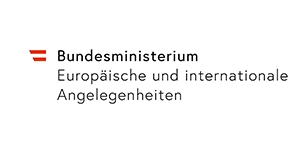Masakhane is a grassroots organization whose mission is to strengthen and spur NLP research in African languages, for Africans, by Africans. Even though 2000 of the world’s languages are African, they are barely represented in technology. The tragic past of colonialism has been devastating in terms of their support, preservation, and integration. This has resulted in a technological space that does not understand our names, our cultures, our places, or our history. Some problems facing NLP in African languages include lack of focus on African indigenous languages, the lack of resources which hinders the ability for researchers to do NLP, and the low discoverability of existing resources for African languages.
Masakhane roughly translates to “We build together” in isiZulu. Our goal is for Africans to shape and own these technological advances towards human dignity, well-being and equity, through inclusive community building, open participatory research, and multidisciplinarity.
Our values revolve around collaboration, community, and inclusivity. We embrace the philosophy of “Umuntu Ngumuntu Ngabantu,” emphasizing the interconnectedness of individuals. We prioritize African-centricity, reclaiming our narratives and knowledge. We value everyone’s unique experiences and contributions. Kindness, responsibility, and data sovereignty guide our ethical practices.
Jury Statement
Masakhane is an outstanding project that impressively highlights the ever-growing divide between the Global North and South, while also clearly demonstrating the role that technology plays in this context. However, the project does not merely aim to showcase and accuse; it fantastically proves the sustainable results that can be achieved when the right appropriation processes and thoughtful use of technology are employed. Masakhane shows the effects and consequences of a technological development, especially that of language-generating systems, aligning with globally dominant language families, which inherently leads to exclusion and discrimination. Masakhane has convinced the jury because, since its establishment in 2019, over 400 researchers from more than 30 African countries have collaborated on the project. They have published current research findings for over 38 African languages in various locations and built a thriving community.
Credits
Credit goes to the whole Masakhane community.
Support received from
Some of the funds Masakhane has received for her various projects include:
- Google: Funding to create dataset for cross-lingual question-answer models in 10 African languages and also funding for a joint Masakhane-Google internship.
- Lacuna Fund: Funding grants to create several datasets in machine translation, named entity recognition, part-of-speech tagging, sentiment analysis, text-to-speech models for various African languages.
- Deutsche Gesellschaft für Internationale Zusammenarbeit (GIZ)
- Google (in the form of compute credits)

The Ars Electronica Award for Digital Humanity was initiated and is supported by the Austrian Federal Ministry for European and International Affairs.
